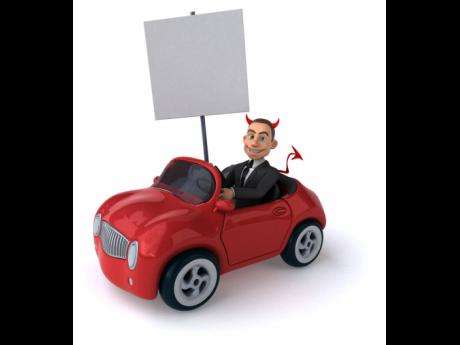Motorists ... Control anger and keep a cool head
It is often said that ‘anger’ is one letter short of ‘danger’. However, there is a general agreement among mental-health professionals that all of us react to certain ‘anger triggers’. An anger trigger can be something that frustrates or annoys a driver. These triggers often result from injustice or unfairness.
“They can occur when the driver feels slighted, such as through insult or disrespect,” says Melody Williams, a nurse in Connecticut, USA. According to Williams, an imagined threat to our authority or reputation can also stir up feelings of anger. “Anger is an expression of lack of control, and the only vehicle you have control over is the one you are driving,” adds Nurse Williams.
Some factors that trigger anger:
1. Underlying stress.
2. The perception that another driver is incompetent.
3. Negative thoughts about other drivers, thus believing that their actions are hostile and intentional.
4. Being in a hurry and perceiving others as being in the way.
How to avoid being victimised by other drivers:
• Check yourself before you decide to drive.
• Drive at a safe following distance, which is one car apart.
• Yield to any vehicle that attempts to overtake.
• Keep your eyes, as much as possible, on the road.
• Allow a tailgater to pass.
• Never return gestures or engage in a verbal argument with another driver.
• Use your horn sparingly.
• Do not make obscene gestures at other drivers.
• Keep away from anyone driving erratically. Avoid showing a reaction to an aggressive driver.
• Use high beams appropriately.
• Use directional signals for every turn or lane change.
• Show you are sorry if you do something unintentional or wrong.
“Poorly managed anger is the root of many serious physical, social, and emotional problems, including poor physical health, chronic disease, depression, unhappy relationships, violence, and crime,” says Anthony Allen, consultant psychologist. By contrast, the benefits of managing anger in constructive ways are as follows:
a. Lower heart rate and blood pressure.
b. Better sleep for drivers.
c. Better digestion.
d. Better relationships.
e. Improved problem-solving ability.
f. More constructive communication and increased self-discipline and self-confidence.
Not only does anger give rise to harsh words, but harsh words feed anger. The seething soul uses up valuable inner energy, leaving far less for the normal healthy functioning of spirit, mind, and body. Therefore, to rid the driver’s feelings of anger and frustration, the first step is probably to keep a check of his tongue and bear in mind that a soft answer turns away wrath, but grievous words stir up anger.

